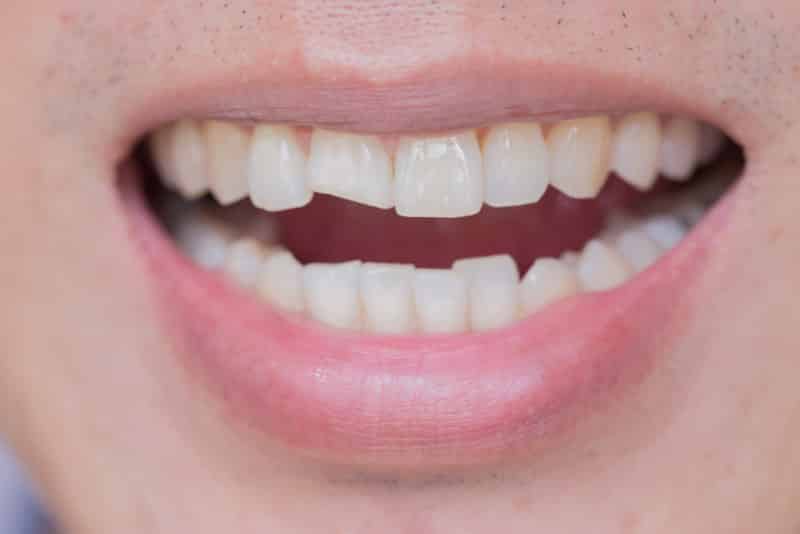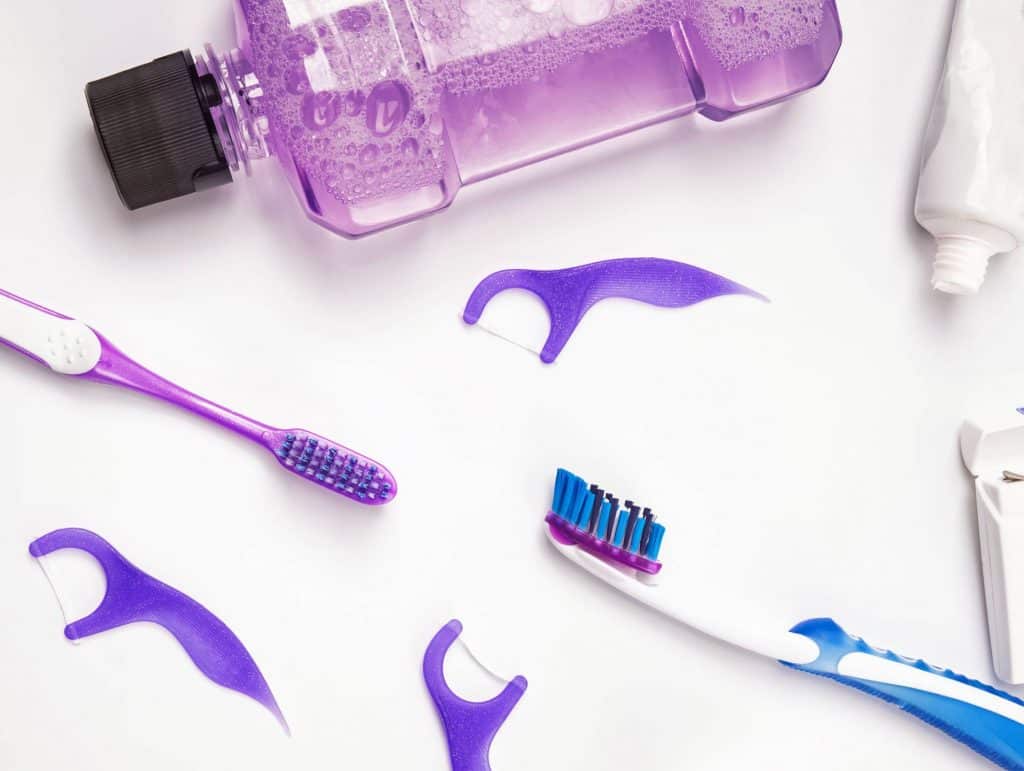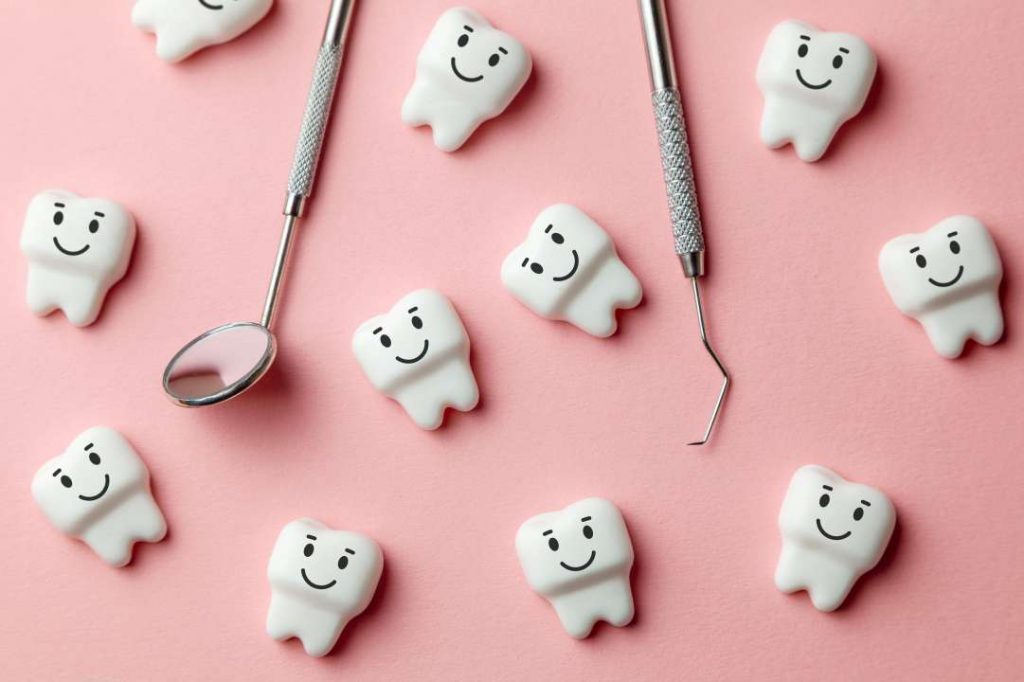Although our teeth are among the strongest materials in the human body, they are still susceptible to injury. A chipped or fractured tooth is a common, often preventable condition resulting from excessive or repetitive force or physical impact. Not all teeth break the same—there are a variety of causes and types of tooth trauma. Depending on the nature and severity of the fracture to your tooth, you may require emergency treatment. Our Saskatoon dentists give their advice on what to do if you or your child has chipped or fractured a tooth.
Common causes of a chipped tooth:
- Breaking open shelled nuts or sunflower seeds with teeth
- Chewing candy or other hard foods
- Chewing on ice cubes or biting into frozen treats
- Sports injuries
- Bruxism or grinding teeth during sleep
- Using teeth as tools to open things such as bottles and packaging
- Car accidents or falls
- Mouth jewelry
- Misaligned bite (unequal distribution of force when chewing)
- Poor oral hygiene that causes the enamel to erode and the teeth to lose strength
Not all teeth break the same
Because the front teeth are slender, single-rooted teeth, they are more susceptible to being broken. Larger, multi-rooted molars are stronger but it is still common for them to break or chip, especially if the enamel is already weakened or if there is any existing decay.
You might think the most common cause of a chipped tooth is a blow to the face causing a sudden, clean break. However, some fractures can be the result of months or years of small, repetitive forces that gradually weaken the enamel until the tooth reaches a literal breaking point, causing a crack or fracture. These slow breaks, which are sometimes without symptoms and thus not always detected immediately, can quickly worsen to cause irreparable damage if left untreated.
What to do if you have a broken tooth
If you have chipped a tooth, it is important to book an appointment with your dentist as soon as possible. A chipped tooth may be considered a dental emergency if…
- it is painful
- there are broken fragments or sharp edges that could damage the inside of the mouth
- there is bleeding that doesn’t stop when pressure is applied
- more than half of the tooth is missing or damaged
In the meantime, there are a number of things you can do to manage pain and reduce the risk of complications:
- Manage any bleeding by applying firm pressure with clean gauze
- Apply a cold compress to reduce any potential swelling
- Regular warm, saltwater rinses to keep the mouth as clean as possible and prevent infection
- Cover sharp edges with dental wax to prevent more damage to the soft tissues in the mouth
- Book an appointment with your dentist to assess the damage and repair accordingly
- An over the counter pain medication such as ibuprofen can help with pain
- Opt for liquids and soft foods to prevent further damage until you can see your dentist
Treatment for fractured teeth
There are a variety of ways to restore a chipped tooth. Your dentist will recommend a course of treatment depending on the type, location and extent of the break. If there are loose fragments that broke clean off and you’re able to keep them until your appointment, your dentist may be able to fuse them back in place. For chipped front teeth, bonding or veneers might be the best option. For chipped molars, your dentist may recommend a dental filling. Often, small chips can be filed down to smooth out any jagged edges. Large chips and cracks might require the placement of a crown over the damaged tooth. If the break is so large that it reaches the inner pulp of the tooth, root canal therapy might be needed to prevent infection and re-seal the area.
Prevention tips for an unbreakable smile
- Mouthguard during sports
- Nightguard for sleep bruxism
- Strengthen and remineralize the enamel
- Avoid using teeth to open things
- Avoid chewing hard foods such as popcorn kernels, candy,
- Avoid habits that deteriorate the enamel of your teeth such as nail biting, chewing sunflower seeds, crunching on ice cubes
- Maintain good oral health habits, including regular checkups and cleanings
By taking precautionary measures to protect the teeth, you can significantly reduce your risk of broken teeth. Delaying treatment of a chipped tooth can result in further damage and even the loss of the tooth, so early intervention is essential. If you break a tooth and still aren’t sure whether your case requires emergency care, you can always contact the team at Acadia Dental for advice over the phone. By calling us right away, we can reserve the earliest available appointment to restore your broken smile to its original appearance and functionality.




